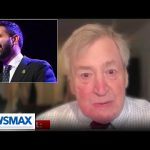Harvard astrophysicist Avi Loeb has once again broken the polite silence of the scientific establishment by publicly linking the mysterious 1977 “Wow!” radio burst to the newly tracked interstellar visitor known as 3I/ATLAS. Loeb’s argument is simple but provocative: the arrival directions overlap closely enough that accidental alignment is unlikely, and the coincidence demands we stop treating such anomalies as academic trivia. Whether you call it curiosity or common sense, Americans should applaud a scientist willing to follow the data where it leads instead of bending it to bureaucratic consensus.
3I/ATLAS itself is no ordinary comet; it was identified in 2025 as an interstellar object on a hyperbolic trajectory, the third such visitor we’ve detected after ʻOumuamua and Borisov, and it has garnered intense international attention from both observers and theorists. Astronomers have pored over its composition and path because interstellar objects give us a rare, up-close look at material forged around other stars — a scientific windfall the United States must not squander. The presence of unusual spectral features and an odd nickel signal has only deepened the mystery, and that makes Loeb’s call to listen all the more urgent.
Loeb went further than speculation: he computed that the sky position of 3I/ATLAS in 1977 lies within a few degrees of the Wow! signal and estimates the odds of such a match at roughly 0.6 percent, while noting that a transmitter at that distance would need on the order of a gigawatt to produce the recorded intensity. Those are not vague hints; they are quantitative flags that responsible scientists and policymakers should not ignore. If some of our brightest minds are willing to consider an extraterrestrial-origin hypothesis, the rest of us should stop treating that as a fringe punching bag and start treating it like a national interest.
Of course, the mainstream media and many in the scientific community remain skeptical, rightly insisting on rigorous evidence and peer review before rewriting textbooks. Skepticism is healthy, but reflexive dismissal of inconvenient possibilities is not; too often today academia cloaks certainty as virtue while quashing the mavericks who actually move knowledge forward. The sensible middle path is clear: investigate with rigor, fund targeted observations, and let the data, not ideology, decide.
This is where conservatives should lead: demand America reassert technological and scientific leadership, not with woke pronouncements but with hard assets — radio arrays, space assets, and a practical alliance between NASA and private enterprise to monitor and, if needed, respond. Loeb has publicly urged that we point every available radio telescope at 3I/ATLAS and even use spacecraft for close study, a commonsense request that aligns with national security interests as much as with pure science. If the United States is to remain the land of innovation, we must fund the tools that let truth surface, even when the truth is uncomfortable or extraordinary.
Patriotic Americans should be grateful for scientists who take risks and speak plainly about low-probability, high-consequence events. This debate is not about sensationalism; it is about stewardship — stewardship of our security, our scientific leadership, and the future our children will inherit. Washington should stop treating space as an afterthought and start treating it like the strategic frontier it is, because whether 3I/ATLAS turns out to be a natural comet or something more, the obligation to observe, prepare, and lead falls squarely on American shoulders.




